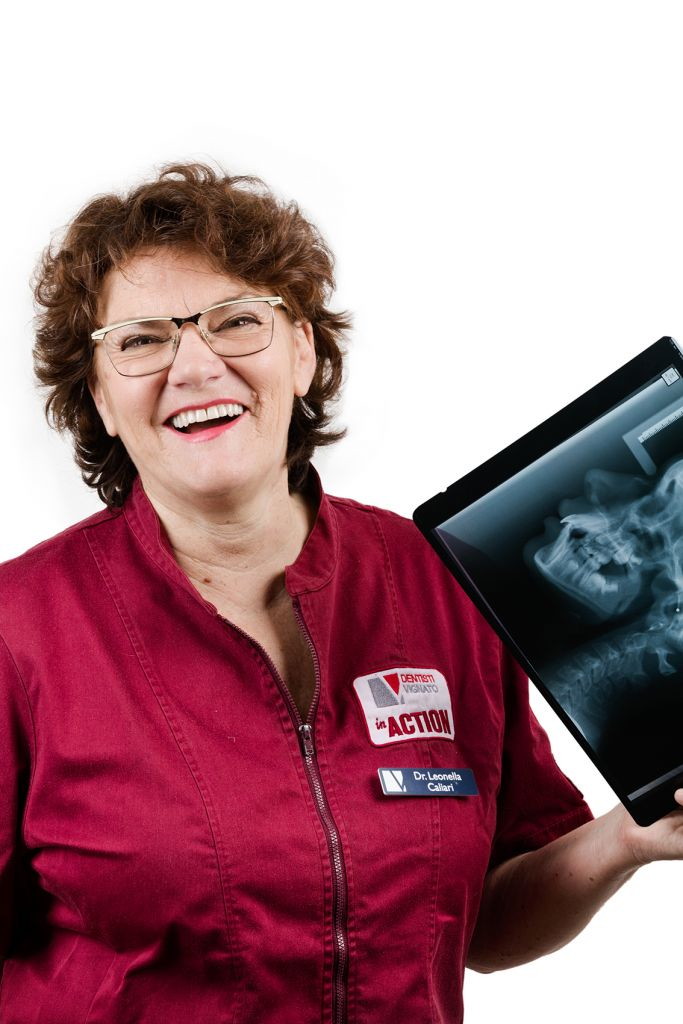
Dental accidents inside the mouth can often happen to kids who have just started walking or to very lively ones.
Reason why it is important to keep calm and, when a kiss and some ice are not enough, a few notions on first aid become useful, so that we are able to block bleeding until we reach the hospital or the pedodontist – the dentist specialized in children treatments. He/she perfectly knows how to approach them from a clinical and psychological point of view.
Our life style has increased the chance of such accidents, as 1 child out of 3 has become a victim, as Doctor Leonella Caliari – Director of Centro Ortodontico Vicentino, part of the Dentisti Vignato Dental Clinic – tells us.
However, if we normally check on kids so that they do not climb on our living room’s furniture, in case of contact sport activities such as rugby, boxing, skating, skateboarding or cycling we do not always think of using specific protections such as gumshields, while they are necessary to protect the dentition of our young daring kids. Keep attention also to those kids presenting protruding upper teeth due to thumb or pacifier sucking, as they are more subject to traumas involving upper incisors.
A dental trauma which involves also lips can cause a considerable gum bleeding, as well as cheek and tongue, cut by teeth during the impact.
As a consequence, both kids and parents, along with any other person involved in medical aid, get scared.
So Doctor, what should we do in case of dental accidents?
First of all do not panic! Reassure your kid, keep him/her clean by blocking blood with sterile gauzes or tissues and place the ice externally to reduce inflammation.
If you notice a cut which needs stitches, a swinging tooth or a clear fracture, you need to take him/her to first aid or to see the pedodontist, without taking any other initiatives.
In case of traumas involving baby or permanent incisors, the dentist usually does an endoral X-ray with very low radiation levels, in order to evaluate the injury entity. Unluckily, some traumas involving baby teeth can damage the delicate follicle which slowly originates the permanent tooth, thus threatening its development.
An X-ray is therefore very useful because, in case of a permanent tooth, we are able to see the presence of any fractures on the tooth root and its development. While, if a baby tooth is lost, we are able to check if it has not gone inside the gum.
The pedodontist, once the tooth has been medicated, will be able to prescribe any antibiotic therapies to fight infections and give you all the necessary information based on the injury entity which can be of four types:
–dislocation of the baby tooth which makes it swing. In this case, the kid should not bite for a few weeks.
–dental spillage from its cavity making it impossible to reimplant it if we are dealing with a baby tooth. While, if it is a permanent tooth, this is possible, so clean it first and then keep it in a physiological solution, in milk or inside the mouth and urgently go to the dental office. The less time passes between the trauma and the reimplant, the better. The dentist will then fix the damaged tooth to its neighboring teeth for some weeks.
– strong punch which can darken the tooth with time; this is a sign that shows it is dying. A small abscess could originate over the gum and it will be necessary to devitalize the tooth to avoid any locuses containing germs which can then cause a rheumatic fever.
– dental fracture which, in cases of a permanent tooth, this can be rebuilt. It is important to keep the fragment because it can often be pasted together.
Otherwise, the tooth can be rebuilt with aesthetic materials which perfectly reproduce the shape and color of the fractured one. In some severe cases devitalization is necessary.
After surgery I encourage to brush damaged teeth after each meal with a soft toothbrush. Apply chlorhexidine gel (0,1 %) using a gauze 2-3 times a day for a week in order to avoid the formation of plaque and food residuals. Keep your kids on a light diet for 10-14 days and avoid the use of the pacifier.
A dental trauma is always a traumatic event in the life of a kid, but keep in mind that there is always a solution. The most important thing is to turn to the right people!
Read also:
- From baby teeth to perment ones. Children mouth development
- Mom help, I’m scared of the dentist! First visit recommendations
- Baby teeth: how to take care
- SOS: thumb sucking
- Orthodontic appliances needed
- La sicurezza delle radiografie dentali (italian only)
